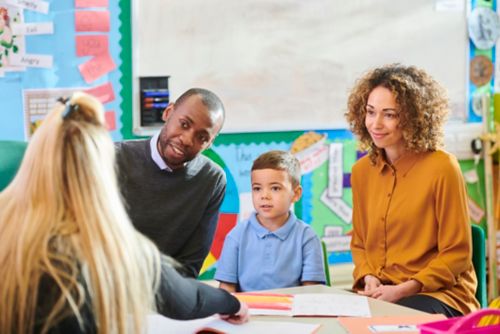Menu
Close
Back
Welcome to
Together is a new resource for anyone affected by pediatric cancer - patients and their parents, family members, and friends.
Learn MoreTreatments for childhood cancer, sickle cell disease, and other serious illnesses may have long-lasting side effects that can affect learning.
Sometimes children and teens may struggle in school in ways they didn’t before diagnosis or treatment. Some students may have problems focusing and paying attention.

Federal law provides support and services to help students with challenges learn better. These resources are called Individualized Educational Programs (IEPs) and 504 plans.
Some treatments can affect:
There are ways to help children adapt to changes. The key to getting the most out of these options is for your family, school, and hospital to work together. A school liaison can help you put this team together.
Federal law provides support and services to help students with challenges learn better. These resources are called Individualized Educational Programs (IEPs) and 504 plans.
The 504 plan or IEP meeting may include:
The group will talk about the accommodations or support services your child might need in school. Members will identify the problems your child is having. And they will propose solutions.
You know your child better than anyone.
Suggest approaches that have worked in the past.
Bring information about your child’s cancer and the side effects of treatment to share with educators.
The IEP or 504 plan should specify the accommodations or support services your child needs.
Clear wording can get rid of confusion. For example, be specific about the memory aids your child will use.
Detail who has the job to carry out each part of the IEP or 504 Plan. Discuss all school settings that might require supports:
You know your child better than anyone. Be your child’s advocate in planning and monitoring your child’s progress. If you believe your child’s needs aren’t being met, ask for a meeting to discuss needed changes.
For more information, talk to your hospital’s school liaison or to a teacher or administrator at your child’s school.
—
Reviewed: May 2022